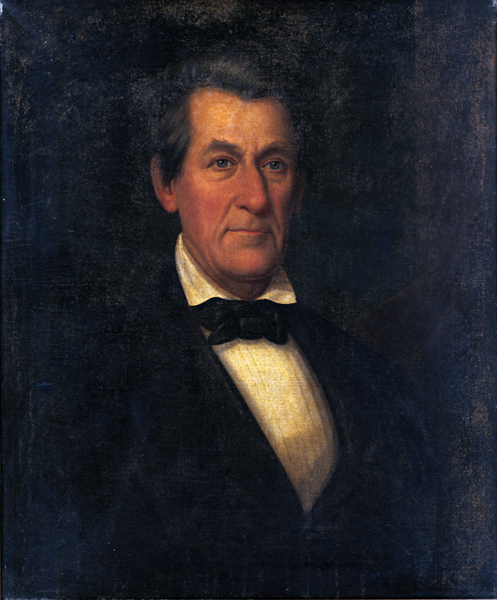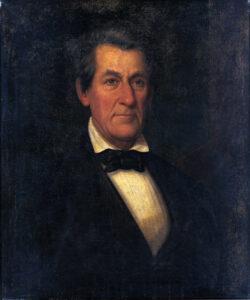Joseph Marshall Walker
Planter, politician, and Democrat, Joseph Walker served as governor of Louisiana from 1850 until 1853.

Courtesy of Louisiana State Museum
Governor Joseph Marshall Walker. Baker, William H. (artist)
Planter, politician, and Democrat, Joseph Walker served as governor of Louisiana from 1850 until 1853. Walker, who oversaw passage of the Louisiana Constitution of 1845, spent much of his term dealing with opposition to that document. Critics objected to the constitution’s restrictions on the legislature’s ability to borrow money, creation of new banking institutions, and licensing of private corporations. Eventually, passage of the Constitution of 1852—which Walker bitterly opposed—cut a year from his term by rescheduling the election date.
Joseph Marshall Walker was born in New Orleans in July 1786, the son of Peter Walker and Constantia Revoli Walker. After being educated locally, Joseph Walker bought land in Rapides Parish and became a cotton planter. He married Catherine Carter of Adams County, Mississippi, with whom he had twelve children. He served as a brigadier general in the Louisiana state militia from 1812 to 1815. Five years later, he was elected to the Louisiana House of Representatives, where voters reelected him in 1822, 1832, and 1836, before sending him to the state Senate. Elected president of the state constitutional convention, Walker oversaw passage of the controversial Constitution of 1845, which abolished property qualification for voting and/or holding public office and directed the legislature to create a public school system, among other things.
Nominated for governor by the Democratic Party in 1849, Walker defeated Whig candidate Alexander Declouet by a narrow margin. Sworn into office on January 20, 1850, he was the first governor to be inaugurated in Baton Rouge, the new state capital. As governor, he continued his predecessor’s efforts to establish a system of public schools and urged improved maintenance of the state’s levee system. He also advocated the election of public officials, especially judges, by popular vote rather than political appointment. Though not opposed to amending the Constitution of 1845, Walker unsuccessfully resisted the adoption of a new state constitution. He particularly opposed reversing the prohibition against creating banking institutions. Despite his opposition, the state legislature passed a new constitution in 1852 which, adding insult to injury, shortened his term as governor by one year.
When his successor, Paul Octave Hebert, replaced him, Walker retired to his plantation in Rapides Parish in 1853. He remained there until his death on January 20, 1856.
Adapted from Jane B. Chaillot’s entry for the Dictionary of Louisiana Biography, a publication of the Louisiana Historical Association in cooperation with the Center for Louisiana Studies at the University of Louisiana, Lafayette. http://www.lahistory.org
Sources: The National Cyclopedia of American Biography, X; Miriam G. Reeves, The Governors of Louisiana (1972).
